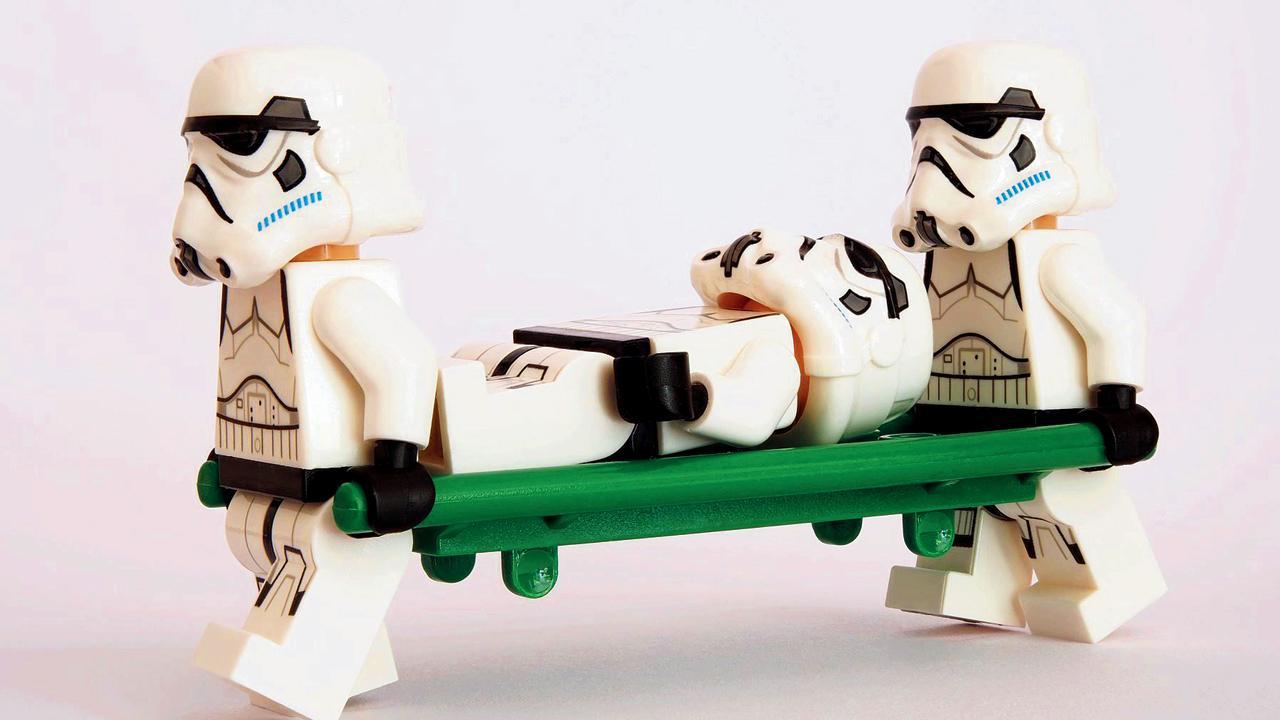Most people do not question doctors, any doctors. The physician in Indian culture is nearly god, all-knowing and infallible. The problem is—they too are human

Some doctors may be worthy of reverence but a few might be downright villainous. Representation pic
 How can you tell if a doctor is good?
How can you tell if a doctor is good?
ADVERTISEMENT
It’s a serious question, because unlike nearly any other profession, where selection depends on merit, doctors never get selected. When the family physician went extinct, we entered the age of the random physician, either picked because they were conveniently nearby or assigned to you by the hospital.
Enough Bollywood movies have used the mantra—Aap daktar nahin, aap bhagwan hain!—to make it a cast-iron social taboo to question your doctor. Evaluating one is sacrilege.
At any rate, by the time you need a doctor it’s already too late to select one. You’re being wheeled into the emergency room on a gurney and the doctor on duty is the doctor you’ll get. Your life will literally be in the hands of a stranger.
What if it wasn’t an emergency? What if it was a pain at the sternum and a bloated feeling. You feel gassy but an uncle who thought it was dyspepsia ended up getting a triple bypass cardiac surgery that day. So you go to a doctor. On second thoughts, let’s make that two.
The first one tells you it’s probably the chholé you ate for dinner and prescribes Pepto-Bismol.
The second says you have no time to lose and rushes you to the ER. They stick tubes into you, take blood, give blood, measure you, gauge you, assess you, stick stents into you, and tell you you had a narrow escape.
Who’s the better physician?
I asked a posse of friends what traits they’d look for in a good doctor. The top two qualities sought were that he should be a good listener and not be too quick to prescribe pills and injections. The doctor who knew it all was nobody’s favorite. Humility was well liked. Everyone wanted a Santa Claus who would be kind, reassuring and comforting, even while telling them their days were numbered. Of course, very few knew such doctors in their lives.
There’s a problem here: Human beings are not terribly patient. I get tired after listening to the problems of two people in a row. Expecting a doctor to listen calmly to dozens, hundreds of patients is like requiring all engineers to be logical or all writers to have uncombed hair. In 2018, India finally crossed the WHO gold standard with 1.34 doctors per 1,000 patients, thanks to 479 medical schools churning out 67,218 MBBS graduates each year.
I can guarantee they will not all be patient listeners.
After years of locking horns with doctors, I have made my own little checklist for sizing them up.
1. Prefer the doctor who tells you don’t really need any medicines at the moment.
2. Don’t trust a doctor who smiles too much or looks jolly every time, all the time. There has to be a limit to bedside manner.
3. Love the doctor who encourages you to get a second opinion.
4. Choose the doctor who doesn’t hit you with antibiotics for every little ailment.
5. Stay with the doctor who doesn’t get outraged when challenged. Remember, most don’t have the time to stay updated.
Do remember, many doctors in hospitals are saddled with sales targets. My daughter had problems with her vision. The hospital performed a battery of tests including one where she had to stick her head in a chamber and click a button each time she saw a random light blink. Based on half a day’s tests, they told me her optic nerve might be damaged or worse, there could be some problem with her brain. A brain scan was recommended.
I’m a believer in Occam’s razor—all things being equal, said William of Ockham, the simplest explanation is the best. I took my daughter to a different hospital where they established in 10 minutes flat that she just needed new spectacles.
There’s a deep lesson here—a doctor who works in a hospital that has invested heavily in high-tech machines that perform high-tech tests will tend to prescribe tests you don’t need, especially if you’re covered by insurance. After all, costly machines will have high EMIs.
It’s easy to forget that doctors are as human as their patients. A few can be exceptional, worthy of reverence, and a few, like Hitler’s doctors, will be homicidal. But most will be average, mundane, fallible, sometimes negligent, self-serving or just not professionally sound. Every doctor will be a patient during his life and will need a doctor to diagnose him.
What would a doctor look for in another doctor if he were the patient? Dr Haniraj Chulani, colorectal surgeon at a large Mumbai hospital for over two decades, had a unique answer: “A good doctor should give his patient the same treatment he would have given himself if he had been in the same condition.”
Clearly that doesn’t happen often enough.
Here, viewed from there. C Y Gopinath, in Bangkok, throws unique light and shadows on Mumbai, the city that raised him. You can reach him at cygopi@gmail.com
Send your feedback to mailbag@mid-day.com
The views expressed in this column are the individual’s and don’t represent those of the paper
 Subscribe today by clicking the link and stay updated with the latest news!" Click here!
Subscribe today by clicking the link and stay updated with the latest news!" Click here!







